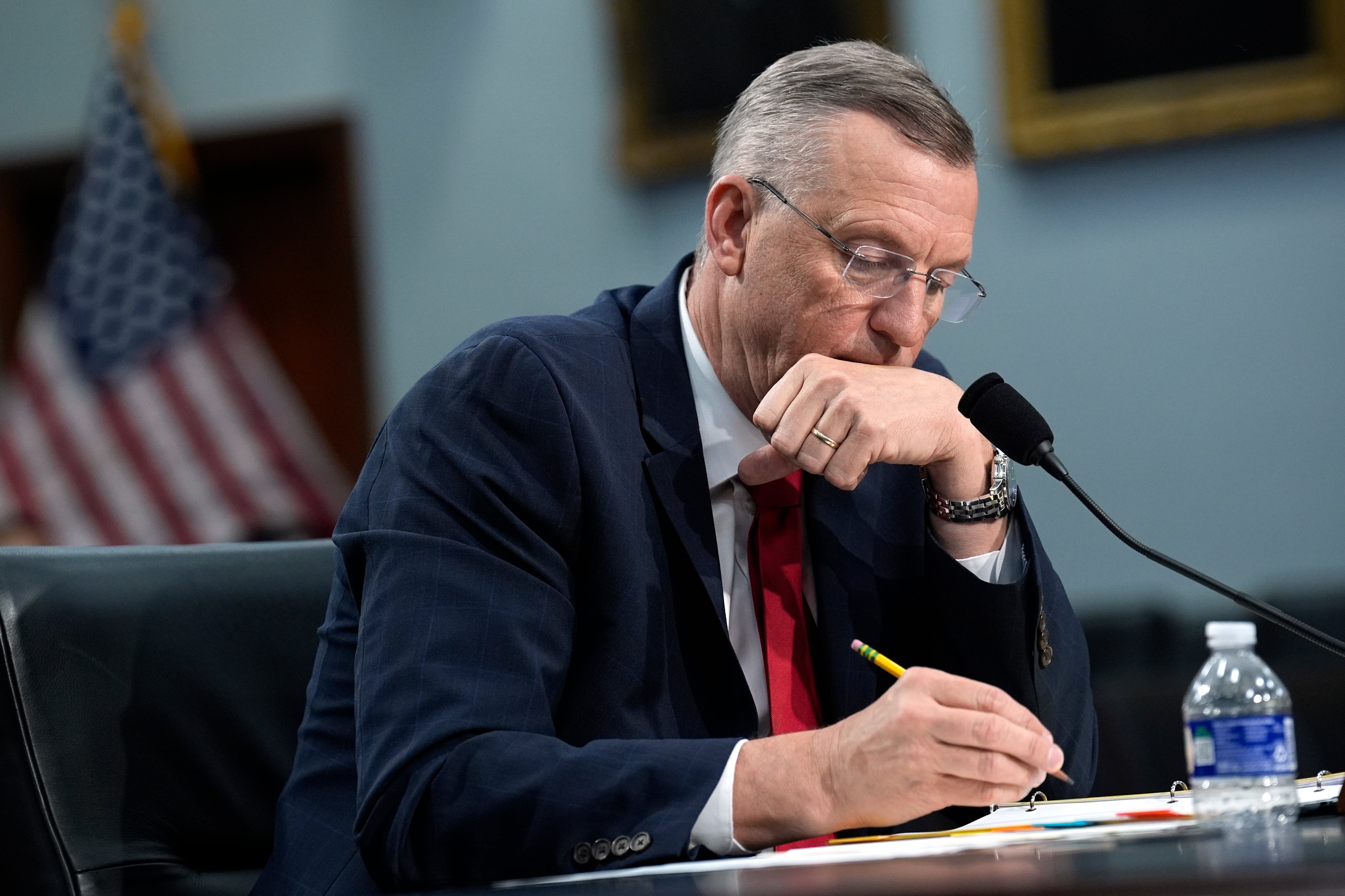Evidence of the Islamic State group's chemical weapons program has inspired fear, shaped military planning and prompted numerous U.S. airstrikes for the past two years.
Yet as U.S. and Iraq forces get underway with the battle for Mosul, the real threat of the extremist group effectively deploying chemical weapons is extremely limited, according to numerous top military officials.
"Right now, it has not been tactically or operationally significant at this particular point," Army Gen. Joseph Votel, the head of U.S. Central Command, said recently.
"In many cases this is pretty low-level. … It's not an overly sophisticated threat at this particular point. And yet it is out there and so we've got to continue to address that," Votel told a meeting of defense experts at the Center for American Progress on Wednesday.
The Islamic State group, also known as ISIS or ISIL, has fired some shells containing crude chemical agents, mostly sulfur mustard or chlorine, which can potentially cause severe lung damage or death in overwhelming quantities. Several confirmed attacks targeted Iraqi Kurdish forces.
But ISIS' efforts to weaponize those chemicals have been ineffective. U.S. military officials say none of the ISIS chemical weapons attacks have caused fatalities.
On Sept. 20, U.S. troops reported a possible mustard attack at Qayyarah West, an Iraqi-controlled air base where several hundred U.S. forces are helping Iraqi army units operate a logistics staging area for the Mosul operation.
But laboratory testing revealed the shell fragment in the attack did not contain any chemical weapons.
In the weeks leading up to the Mosul invasion, U.S. officials reported several strikes on ISIS chemical weapons facilities:
- On Oct. 13 a strike near Mosul targeted a chemical weapons facility.
- On Sept. 14, a strike near Al Huwayjah hit an ISIS chemical weapons storage facility.
- On Sept. 23, a strike hit near Qayyarah destroyed an ISIS chemical weapons factory.
U.S. military officials have repeatedly warned about the risk of ISIS chemical weapons. Both Iraq and Syria have operated chemical weapons programs and there are numerous industrial chemical facilities in ISIS-held territory.
U.S troops deployed to the area are trained in how to respond to such an attack and all units have access to face masks and full-body protective suits if needed.
To reassure the Iraqis, the U.S. military gave the Iraqi army more than 40,000 masks and more than 9,000 to the Kurdish peshmerga forces, U.S. officials said.
The U.S. military said last year that an airstrike killed an ISIS chemical weapons expert known as Abu Malik, who was also a chemical weapons engineer at Saddam Hussein's Muthana chemical weapons production facility.
The ISIS-made mustard agent is typically in a crude form, a powder mixed with oil in makeshift containers strapped to conventional munitions. ISIS has shown no evidence of producing mustard in its gas state, which would be a far more lethal form.
The Islamic State group makes the mustard agent in laboratories inside its territory in Iraq and Syria and there’s no evidence the group has imported it from other countries, military officials said.
High-grade chemical weapons could cause catastrophic causalities, making even the crude forms deeply disturbing.
"There is a psychological impact; we recognize the impact of a chemical round or a report of a chemical round landing next to coalition forces or U.S. forces and what that would mean," Votel said.
"These are things we have to be aware of. This is an adaptive enemy. We respect them -- we don’t respect them as an ideology, but we respect them as an adversary."
Andrew Tilghman is the executive editor for Military Times. He is a former Military Times Pentagon reporter and served as a Middle East correspondent for the Stars and Stripes. Before covering the military, he worked as a reporter for the Houston Chronicle in Texas, the Albany Times Union in New York and The Associated Press in Milwaukee.





